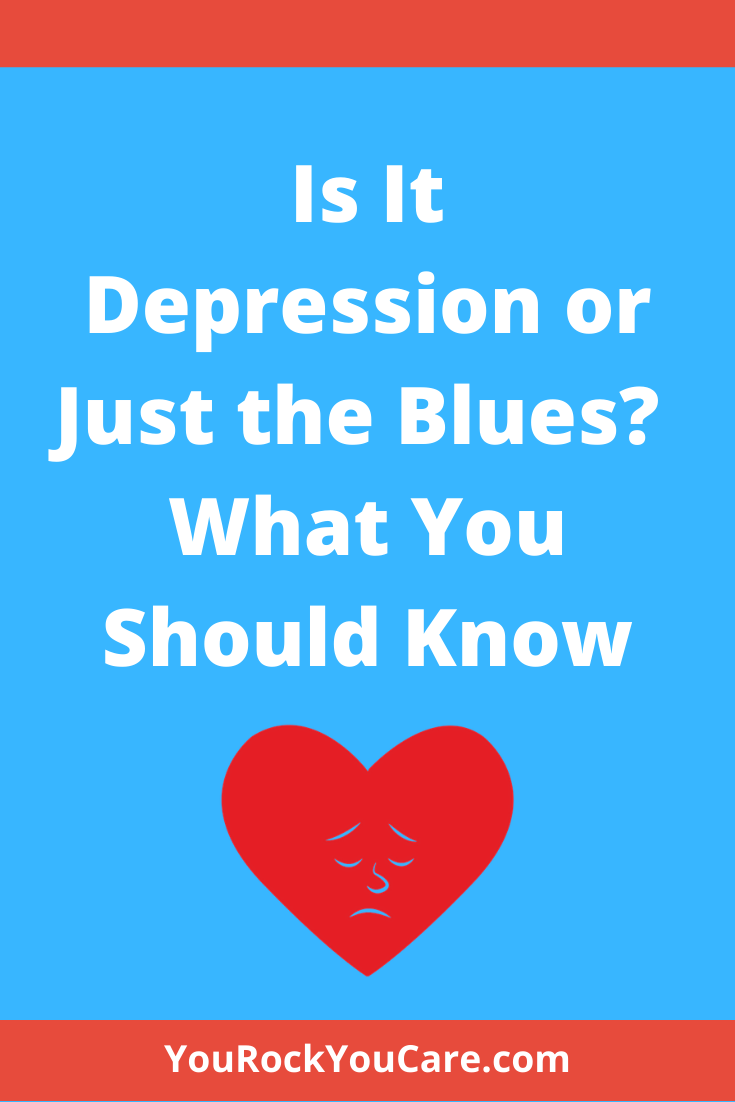It’s important to think of depression like other illnesses, such as, diabetes, high blood pressure or heart disease. It’s a common and treatable condition.
But, if not addressed or treated, depression can lead to more serious health issues… and in some cases, suicide.

Depressive disorders are more common among people with chronic conditions, including obesity, diabetes, asthma, heart disease, arthritis and cancer.
Depression Statistics
According to the World Health Organization (WHO), depression is a common illness worldwide affecting more than 264 million people. Every year, nearly 800,000 people worldwide die due to suicide.
Major depression is one of the most common mental disorders in the United States.
According to the National Institute of Mental Health (2017), major depression affects 17.3 million Americans or about 7.1% of the U.S. population over age 18. Women are 70% more likely than men to experience depression in their lifetime.
A survey of adult caregivers caring for an elderly or disabled family member, friend or relative revealed that 40-70% of them have symptoms of clinical depression (Family Caregiver Alliance, 2011).
Depression is a common but serious illness. Major depression can interfere with or limit one’s ability to carry out major life activities.
About two-thirds of people struggling with major depression never seek appropriate treatment.
The consequences of untreated depression can be devastating, including, emotional pain and suffering, relationship break-ups and broken marriages, increased work absenteeism and decreased productivity, health problems and even death.
Depression and Suicide In the United States
- Over 2/3 of the 30,000 reported suicides in the U.S. every year is caused by depression (White House Conference on Mental Health, 1999).
- There are three suicides for every two homicides committed in the U.S. Up to 2/3 of older adult suicides are attributed to untreated or misdiagnosed depression. (American Society on Aging, 1998).
- Suicide is the second leading cause of death among 10-34 year old individuals. It is the fourth leading cause of death among 35-54 individuals. (Centers for Disease Control and Prevention, National Center for Injury Prevention and Control, 2018).
Risk of depression and suicide can increase due to financial problems, relationship problems, physical disability, illness, mental health issues, substance abuse, bullying, death or suicide of a family member or friend.
Depression and suicide risk do not go away on their own…
If you know the warning signs of suicide, you can get help for anyone in crisis… before it’s too late.
13 Common Major Depression Symptoms
Are you depressed or do you have the blues?
Everyone gets the blues. However, these feelings of sadness are usually short-lived and pass within a couple of days.
When you’re clinically depressed, it interferes with your daily life for many weeks or longer. Your symptoms can affect your mind, body and spirit. It causes pain for you and those who care about you.
Here are 13 common major depression symptoms:
- Feelings of persistent sadness or emptiness
- Feelings of hopelessness and helplessness
- Feelings of worthlessness, self-hate or inappropriate guilt
- Inability to sleep or excessive sleeping
- Agitation, restlessness or irritability
- Significant change in appetite as well as weight gain or loss
- Difficulty thinking or concentrating
- Fatigue or lack of energy
- Becoming withdrawn or isolated
- Loss of interest or pleasure in most activities
- Depression can appear as anger and discouragement instead of sadness
- Recurrent thoughts of death or suicide
- Severe depression may also have psychotic symptoms, such as, hallucinations and delusions
When Should You Get Help For Depression?
You may have true clinical or major depression if you have five or more symptoms for most of the day, nearly every day — for at least two weeks.
If you’re dealing with depression symptoms which are severe enough to interfere with your daily activities, it’s important to speak to your doctor about treatments that can help you feel better.
If you’re depressed, hoping and waiting to simply feel better without treatment can be harmful for your health.
Why?
Untreated depression may become more severe. The longer the delay in treatment, the harder it may be to control.
Untreated depression can worsen or contribute to other medical problems. It has been linked to increased risk for heart disease as well as obesity, diabetes, cancer and Alzheimer’s disease.
Depression can affect how you feel, think and behave. It can lead to a variety of emotional and physical problems. It can lead to problems doing normal day-to-day activities.
Depression may make people feel as if life isn’t worth living.
People who are suicidal or severely depressed can not function may need to be treated in a psychiatric hospital.
Many depressed people do not get proper treatment. This causes unnecessary suffering that can last a long time.
Getting help is a much better option. The success rate is high for treating depression.
Up to 80% of people treated for depression show improvement in their symptoms usually within 4-6 weeks of starting medication, getting psychotherapy, attending support groups or a combination of these treatments.
Even those severely depressed can get better with treatment.
